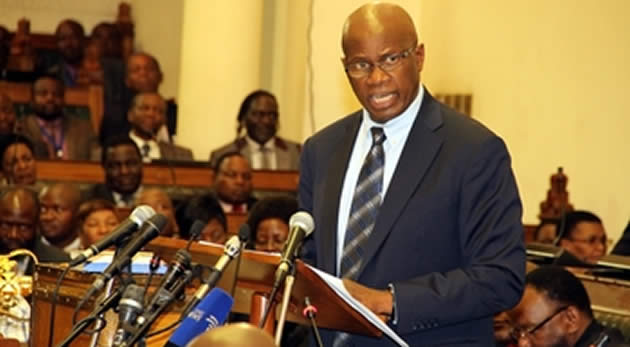Editorial Comment: New parastatal rules practical, effective

THE salary mess in parastatals, state enterprises and local authorities has angered many and surprised much of the Government.
Now things are to be put right, and the Government has chosen the correct order of priorities, putting things right first before playing blame games and starting the long, and quite difficult process, of investigating and proving any suspected wrongdoing.
What Finance Minister Patrick Chinamasa announced in the National Assembly on Tuesday was practical, fairly easy to implement and effective. It should work. The Government is now assuming, through a task force in the Office of the President and Cabinet, the sort of functions done in the small head office of a diversified private corporation, making sure that the semi-independent units follow strict rules, comply with standard corporate governance codes, and generally do their job.
Until the 1990s State enterprises were either Government departments, falling under the standard rules of the civil service, or were parastatals set up by statute and compelled to report frequently and promptly to Parliament. This system tended to be inefficient, but corruption and abuse of office were minimal.
Commercialisation, changing a parastatal from a statutory entity that the Government was expected to bail out whenever it went into the red, into a company owned by the State was expected to boost efficiency and create managements that looked for profit, or at worst at least paid their way.
In some cases this has worked well. We have profitable enterprises, owned fully or partially by the State, that are commercially run and which generate their own finance and make profits. This newspaper is owned by one.
In other cases it has not worked so well. Air Zimbabwe, to pluck an example at random, is not a lean private airline generating profit and filling a market need. It is a loss-making, overstaffed company with commercial deals that really should have been made through standard procedures laid down by shareholders in the private sector. Those arrested may well be innocent. But if they had followed a modern standard code of business they would not have been arrested in the first place.
Under commercialisation there was a lot of loose talk about paying staff and executives “the market rate”. Well salaries at some enterprises are way over market rates. In any case, the private sector tends to pay well for success, and tends to reward failure with dismissal.
We agree in principle that those working for a State enterprise should be paid roughly what they would earn if they were working for a similar private-sector company, so long as they also accept that they pay the price of failure as well as reap the rewards of success. And it is fairly easy for the Government to find out what sort of remuneration the private sector offers. Most private companies would be willing to pass on these sort of details, at least in confidence.
Moving permanent secretaries from boards was also necessary. The linesmen cannot play on the team. Running a Government ministry and running a company require different sorts of people; but permanent secretaries have to be ready to raise the flag if something weird appears to be happening at a State enterprise under their ministry.
This worked well in the 1980s when Harare municipality was ready to award top officials large increases. The local government permanent secretary stepped in and stopped the nonsense.
It is fairly clear that the present mess was created by a small group who were involved with far too many State enterprises in several capacities. They were able to manipulate Enterprise A by stating what was happening, on their watch, at Enterprise B. Well that has now also stopped.
And the Government has rediscovered what the private sector has always known. Good regular and detailed audits are vital. In fact, the enterprises where the State has a substantial shareholding and which are largely free of the sort of problems facing many others are those which have to follow the strict rules of the Zimbabwe Stock Exchange, rules developed by generations of shareholders wanting to ensure their money is used wisely.
Minister Chinamasa has now announced that everyone else will follow similar rules.








Comments